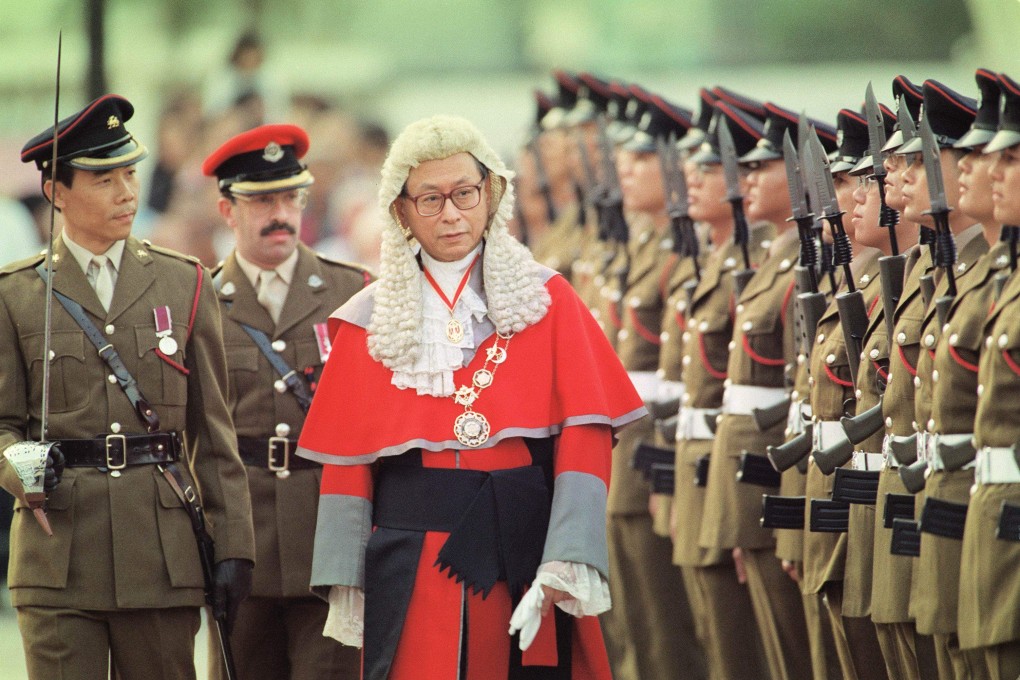‘A man of duty’: Hong Kong political, legal heavyweights pay tribute to the late Ti-liang Yang, city’s first Chinese chief justice, at private event
- Chief Executive John Lee, former leaders Carrie Lam and Donald Tsang among those attending private memorial for Ti-liang Yang, who died earlier this year at age 93
- Anthony Neoh, former chair of Securities and Futures Commission, praises late judge as man of duty and one with strict moral compass

Hong Kong’s political and legal heavyweights gathered on Saturday for a private ceremony for the late Ti-liang Yang, the only ethnic Chinese chief justice during British colonial rule, as they paid tribute to him for his sense of duty and strict morals.
The ceremony for Yang, who died on June 24 at age 93, was held at St John’s Cathedral in Central and attended by Chief Executive John Lee Ka-chiu, former leaders Carrie Lam Cheng Yuet-ngor and Donald Tsang Yam-kuen, as well as political and legal elites.
Anthony Neoh, a former chair of the Securities and Futures Commission, speaking to the Post after the event, said: “If you were to summarise [Yang’s] life in a few words, it would be ‘I was asked; it was my duty’.”
The senior counsel also described the late judge as a mentor and remembered him as “strict in his moral rectitude” and guided by Chinese history and culture.
Chief Justice Andrew Cheung Kui-nung also attended the ceremony, along with Secretary for Justice Paul Lam Ting-kwok, education minister Christine Choi Yuk-lin and treasury chief Christopher Hui Ching-yu.